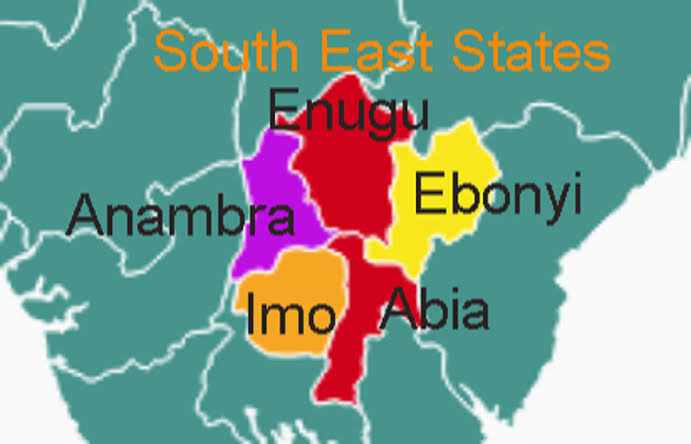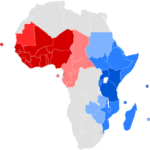By Ben Nwosu & Ndu Nwokolo
Violent conflict has spread to all corners of Nigeria, including former enclaves of relative safety and peace. The conflicts range from terrorism to agrarian violence. The standard management approach is the reactive conflict resolution method, which waits for a conflict to start before steps are taken to stop it, usually with the deployment of security forces. Unfortunately, this method is overstretching the limited capacity of the state. Thus, there is a need for a mechanism of peacebuilding that weaves diverse communities together, supports cooperative existence, prevents conflicts, re-awakes social cohesion and aids post-conflict recovery.
Realising the efficacy of peacebuilding in conflict management, the United Nations created a Peacebuilding Commission (PBC) in 2005 to support peace efforts in countries emerging from conflicts. The Peacebuilding Fund finances the activities of the PBC and has been active in supporting conflict-torn countries worldwide, including Africa. As violence continues to ravage Nigeria, a few states of the federation have adopted the peacebuilding approach by establishing peace commissions. Presently, four states in Nigeria have adopted peace commissions, namely, Plateau, Adamawa, Kaduna, and Benue. The five states of South East East Nigeria, also afflicted by conflicts, such as communal land disputes, farmer-herder violence, gangsterism or cultism, have their conflict management approaches distinct from the peace commission model that focuses on peacebuilding. Two states in the South East have taken steps to institutionalise their conflict management processes. However, the nature and dynamics of the emerging conflicts raise a need for a paradigm shift in their management to achieve more lasting results.
The prevailing approach to conflict management in South EastNigeria has yet to focus on peacebuilding beyond stopping direct conflicts. Hence, this week’s edition of the Nextier SPD Policy Weekly makes a case for a shift towards the peace commission model, which will give thrust to peacebuilding in addition to conflict resolution.
* Beyond Existing Government Institutional Conflict Management Mechanisms in the South East
The South East states have different conflict intervention structures based on their peculiar experiences. Ebonyi state, for instance, has a Ministry of Internal Security, Border Peace, and Conflict Resolution created in 2007 to foster peace in all parts of the state. Anambra State had set up a Truth Justice and Peace Committee to investigate and recommend sustainable peace in the state and the broader South East. Anambra state also has aHouse of Assembly committee on public petitions and conflict resolution, which intervenes in communal disputes. Abia, Imo, and Enugu states have no specialised agencies dedicated to peace and conflict. Hence, they still leave matters of conflict to the conventional security institutions.
While we reckon the efforts of the existing institutions of conflict management in the South East states, there is a need for the peace commission model whose mandates are broadened to include implementing initiatives that mitigate conflict triggers and promote sustainable peace. At the centre of this is non-violence intervention and mediation in conflicts at communal or group levels. The peace commissions are to be based on collaboration with all stakeholders (internal and external) in the search for peace.
In this regard, the commissions are expected to leverage the availability of the United Nations Peacebuilding Commission to assist both conflict-torn societies and those in danger of grave conflicts for technical and funding support.
It is essential also to consider the experience and performance of Peace Commissions in the states that have adopted them in Nigeria. In a 2021 special report of the United States Institute for Peace by Darren Kew, he noted that the Plateau State Peacebuilding Agency (PPBA) established in 2016 and placed directly under the governor remarkably achieved the setting up of peace committees in each of the 17 Local Government Areas in Plateau state. These committees addressed neighbourhood conflicts at their sources before any escalation. The PPBA held joint monthly meetings called the Peace Architecture Dialogue. They also collaborated with Civil Society Organisations (CSOs)on issues of natural resource management, peace and gender. However, according to Kew’s report, the over-centralisation of the agency around the governor made it lack independence and sufficient neutrality.
The Kaduna State Peace Commission was created in 2017 with an extendable five-year mandate. It established peace committees in most of the LGAs in Kaduna state. Local government officials host and organise the peace committees, including civil society and traditional institutional members. KSPC was established as an independent commission, not as an agency in the governor’s office, but reports to the governor through the Secretary to the State Government. The Commission has built a reputation of impartiality primarily due to non-interference from the executive. It plans to make an early warning and response system based on ICT. However, KSPC faces funding challenges as the government provides just a little funding. KSPC is not bound by civil service rules to sustain its independence and impartiality.
Adamawa State Agency for Peace was created by Governor Jibrilla in 2018. Still, it was not regulated by state legislation and was run by a few civil service staff members who were seconded from different ministries in the state. Being an initiative of Governor Jibrilla, it was scrapped in 2020 by a new Governor, Fintiri and reorganised with an enabling legislation. It cooperated with traditional rulers to set up an early warning and early response system through which leaders and community members could report threats to peace. The agency’s reporting tool was easily useable for everybody, including illiterates. Unlike the Adamawa, Kaduna, and Plateau state Peace Committees, the Benue State Peace Commission is yet to fully start activities as the state government appointed leadership for it only six months ago. Benue can take advantage of the lessons of the first three experiments in the peace commission approach. However, we understand that some opponents of such an idea may question why these four states are still experiencing violent conflicts despite having such peace commissions. It is important to note that various factors and circumstances could increase the risk of conflict recurring. These issues may include negative economic growth, lack of involvement by the international community, intensely fought conflicts and negotiated settlements which left the parties with the desire not to let go. Therefore, considering that the South East region is a post-conflict region in every sense of a post-conflict setting, timing and sequencing that looks at interventions’ aimed at preventing future violence while not disrupting the fragile peace that may exist after a period of violent conflict’ should be seriously considered.
* Synthesising Lessons from Earlier Experiences and Recommendations for the South East
Based on the three experiences on the peacebuilding institutions in a few Nigerian states, the few factors that stand out are (im)partiality of the peace commissions due to possible political interference. The second is the need for more funding from the government. This is understandable because heavy government funding may inevitably draw political interference and undermine the independence of the commissions. On the good side, the commissions successfully cascaded their activities to the grassroots, where they established peace committees down to the local government levels and, in some states, involved traditional institutions and religious institutions.
Based on the above lessons of challenges and successes, we recommend that the South East states consider the following:
1. Establish Peace Commissions in the five states of the South East with a mandate to promote proactive peacebuildingthrough early warning identification, mediation, and cooperative relations promotion.
2. The peace commission in each state should be a people-driven quasi-governmental institution with the power to convene meetings and provide credible intelligence to the state government and security institutions.
3. The Peace Commission should be staffed by citizens and civil servants who are paid sitting allowances, not salaries, thereby reducing the cost of governance while striving to provide sustainable peace.
4. Focus on early warning systems is critical as earlyprevention is far more cost-effective than reactive intervention.
5. The early warning system should be tied to the use of ICT to spread information to all stakeholders and support the necessary rapid response in the event of any outbreak of violence. Awareness of the use of the ICT tool is crucial for success.
6. Each state should cascade the peace committees to every local government and electoral ward to give them a broad-based grassroots character.
7. A tripartite funding model in which parts come from the government, citizens, and international development agencies should be considered for the peace commissions in order to secure their independence. Accordingly, it is important to establish a security trust fund in each state so that part of the fund would support the Commission.
8. The peace commissions can leverage the United Nations Peacebuilding Commission, which provides both technical and funding support for peacebuilding activities. Other international development agencies committed to peacebuilding are also crucial for partnerships.
* Policy Recommendations
1. There is a need to establish Peace Commissions in the five states of the South East with a mandate to promote proactive peacebuilding through early warning identification, mediation, and cooperative relations promotion.
2. Peace commissions in each state should be a people-driven quasi-governmental institution with the power to convene meetings and provide credible intelligence to the state government and security institutions.
3. The Peace Commission should be staffed by citizens and civil servants who are paid sitting allowances, not salaries, thereby reducing the cost of governance while striving to provide sustainable peace.
4. There should be an increased focus on early warning systems for early prevention.
5. Early warning systems should be tied to the use of ICT to spread information to all stakeholders and support the necessary rapid response in the event of any outbreak of violence.
6. Each state should cascade the peace committees to every local government and electoral ward to give them a broad-based grassroots character.
7. Consideration should be given to a tripartite funding model in which parts come from the government, citizens, and international development agencies in order to secure their independence.
8. The peace commissions should leverage the United Nations Peacebuilding Commission, which provides both technical and funding support for peacebuilding activities.
* Conclusion
The South East of Nigeria may be relatively less conflict-ridden than several other parts of Nigeria. However, it is not entirely free, as there are persisting fears of different types of bloody conflicts. Its densely populated nature, especially in rural areas, is rapidly increasing climate-linked conflict and insecurity. Unfortunately, it is not well-reckoned as an area that needs assistance in conflict interventions and peacebuilding. The existing institutions of conflict management in some regional states were designed without mindfulness of the nature of evolving conflicts, such as invasions of rural agro-communities by herders and the resultant violence and rising communal land conflicts out of climate change. Thus, the institutions have limited response capacity. Therefore, we recommend the transcendence of the existing conflict management model for a peacebuilding model that begins its intervention from the very origin of the conflict to prevent escalation. Besides, restorative interventions for people to return to their everyday lives and livelihoods after conflict are integral to the peacebuilding model.
(Dr. Ben Nwosu is Associate Consultant at Nextier, a Senior Research Fellow at the Institute for Development Studies, University of Nigeria; while Dr. Ndu Nwokolo is a Partner at Nextier and Honorary Fellow at the School of Government at the University of Birmingham, UK.)



